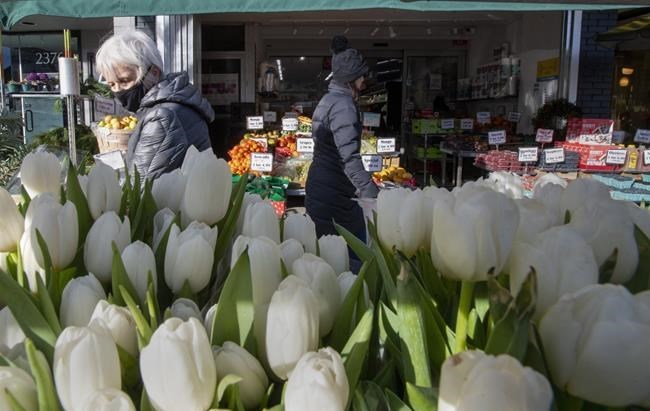The corner of Anderson and Cartwright streets in Vancouver has been bustling lately as Canadians looking to support independent businesses flock to the Granville Island Toy Company.
But keeping up with the demand has not been easy. A 20-foot shipping container of toys owner Joanna Mileos ordered from Asia in May didn't arrive until September and a slew of products she expected in October only trickled in this week.
"It was a welcome sight because we were starting to get a little low on inventory," she said. "We're all madly trying to unpack boxes and throw everything out on the shelves as fast as we can."
The situation that has unfolded at Mileos' shop is being seen in nearly every corner of the country as the "shop local" sentiment that gained traction last year has not waned.
However, businesses looking to capitalize on that demand are contending with inflation, shipping delays, COVID-19 outbreaks, flooding in B.C. and shortages of many goods.
Trying to balance the wave of interest in supporting independent businesses with all the challenges just as a new variant of COVID-19 circulates has been "pretty hectic," said Mileos.
"We do huge numbers in Lego every year and even Lego was having trouble keeping up," she said.
"Then we had the supply chain issues as well as the flooding compacting things that didn't help either for sure."
On the East Coast, Kimberley Dares is contending with similar issues.
Her Trainyard General Store in Dartmouth, N.S. only sells goods made in Canada and most of them come from local purveyors, but her artisan suppliers have been dealing with shortages of materials for several months, she said.
For example, she's waiting on an order from B.C. that was held up by a shortage of glass jars, which are needed to make the products Dares requested.
"It's a great time to be making candles and to be selling candles, if you already had all of the jars you needed in your warehouse, but if you're waiting for the jars to arrive it's a very stressful time," she said.
Even books and paper products are impacted.
"We have an artist that we carry in the shop actually who spent almost two years working on a pop-up book," Dares said.
"The release date had to keep getting pushed and it arrived like five hours before their final craft show of the year started."
Dares is also caught up in the shipping upheaval. Orders she placed two months ago have yet to arrive. One is still sitting in B.C. and the other is somewhere between Toronto and Dartmouth, already having missed several delivery projections.
But the biggest challenge for Dares has been starting a website to sell her goods on.
It has taken months to get a dizzying number of items online — a task handled by Dares and her small staff amid packing orders.
"In February of 2020 every greeting card in the store, all 4,000 of them, was listed as greeting card, so we had to go through every one of them and find out things like how many of the birthday cat with balloons greeting cards we had," she said.
"The learning curve has been really huge in that sense."
Luckily, customers haven't been angry about the holdups, Dares said.
She explained that customers who call to inquire about missing items from their order often apologize for contributing to her stress levels.
"They're really aware of what the burden has been on businesses," Dares said.
"That's not always how December in retail goes. At least at this shop, we're seeing almost more kindness than we might have seen even a couple of years ago."
This report by The Canadian Press was first published Dec. 22, 2021.
Tara Deschamps, The Canadian Press



